Integrating Family Systems and Critical Race Theories into Progressive Disclosure Models in Pediatric HIV Care - (2024)
-
You must log in to register
- Non-member - $60
- Member - $35
- Student - $15
This presentation will discuss the implementation of Family Systems Theory and Critical Race Theory into the progressive disclosure of pediatric HIV. The theoretical foundation for progressive diagnostic disclosure is often outdated and does not consider the role of race and family systems. Our goal is to provide child life specialists with additional theoretical resources for assessing educational needs and delivering family-centered care.
Suggested Domain: Assessment, DEI
1.0 PDU
LEARNING OBJECTIVE(S):
- Participants will be able to describe the rationale for adding two additional theoretical approaches to their assessment and intervention process when educating children, youth, and families about HIV.
- Participants will be able to recite the details of family systems theory and critical race theory that align with the needs of children, youth, and families during HIV disclosure.
- Participants will be able to recall a case describing the integration of family systems theory and critical race theory into a new model for progressive diagnostic education.
- Participants will be able to list the steps involved in providing progressive diagnostic disclosure to children, youth, and families with HIV.
DISCLAIMERS
(1) This webinar has free registration for ACLP members from July 1st - 30th. Starting August 1, the webinar will be offered to members at standard webinar rates.
(2) All webinar content and its certificate will expire on 7/15/2027 regardless of when it is purchased, accessed, or completed. At that point, contents will no longer be available in any form, including as an archive or as a PDU certificate. It is the responsibility of the learner to complete the contents and download and save the certificate for their records before 7/15/2027.

Kathryn Cantrell, CCLS, PhD
Associate Clinical Professor
Texas Woman's University
Kathryn Cantrell, PhD, CCLS is an Associate Clinical Professor in the Department of Human Development, Family Studies, and Counseling at Texas Woman’s University. Dr. Cantrell worked as a child life specialist for children and families with HIV at St. Jude Children’s Research Hospital and completed her doctorate in Counseling Psychology at the University of Massachusetts Boston. She trained as a pediatric psychologist working primarily with children with medical trauma. Using mixed methods, she researches illness disclosure, online patient communities, and racial disparities in pediatrics. Dr. Cantrell is a former executive editor of The Journal of Child Life and a current Research Fellow with the Association of Child Life Professionals.

Elena Sanchez de Varona, MA
Graduate Student
Tufts University
Elena is a Certified Child Life Specialist working in the primary care center and infusion center at Boston Children’s Hospital. Throughout her academic career, Elena has had the opportunity to work in various research labs, whose focus ranged from language development to pediatric chronic pain. Her educational background includes an M.A. in Child Studies and Human Development from Tufts University and a B.A. in Developmental Psychology from the University of Minnesota.
